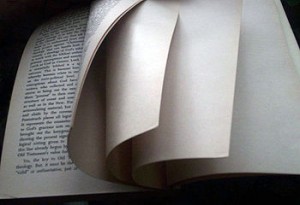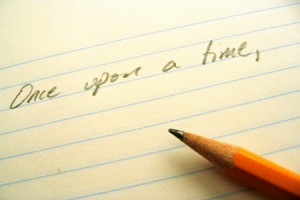I thought about naming this post “Traditional vs Self-Publishing”, but then I reconsidered seeing I’m going to talk about small presses too, and, to some, that’s not exactly going the traditional route since you don’t need an agent to submit to a small press.
Also, it took me a long time to write this post since my thoughts about this subject are many (and not necessarily in order) and they bring up more aspects and more subjects to the table.
Well, now on to the original post:
I still have my doubts of which way to follow about the publishing part of my books …
There are so many different ideas and discussions around the web about going trad or indie and, while reading them, I find myself divided.
Sometimes, I wake up and think “okay, I can do this. I’ll self-publish.”
Then, I stumble across a nice book from a big publisher and think how I would love the prestige of having my name under their wings.
Later, I read articles that feature Maya Banks and Moira Rogers (aka Donna and Bree) and some other authors that are published through small presses, without agents, and like it. They like the handling, the covers, the support, the sales.
Through it all, I think and think and think … and can’t decide!
In an ideal world, my ideal world, I would self-publish some works, have a series with a small press, and a series with a big-six. And from there I would decide which route is best for me, for my style, for my speed … or I could keep publishing the three ways forever. But that’s only a dream …
WHAT I LIKE ABOUT TRAD PUBLISHING:
- Having an agent that can help me with my career, help me plan ahead, think and see big.
- The prestige.
- Having my books on almost any bookstore out there.
WHAT I DON’T LIKE ABOUT TRAD PUBLISHING:
- The price of e-books.
- If I don’t like my cover, there isn’t much I can do about it.
- If an editor wants to cut a scene I love, there isn’t much I can do about it.
- I don’t know what is the future of trad pub in these agitated waters. Will the trad publisher survive?
WHAT I LIKE ABOUT INDIE:
- Control over cover.
- Control over price.
- Higher royalties.
WHAT I DON”T LIKE ABOUT INDIE:
- Marketing. (I know it’s necessary to have an author platform today in trad pub too, but, if the publisher is putting money down on you, chances are they are going to invest a little in marketing too. Little = better than nothing).
- Editing. I hired an editor, who first critiqued then line edited then copy edited my MS, but is it enough?
- Writing crap. Deep down I know I don’t write crap, but what if my instincts are wrong? The editor said my MS was really good, but that’s one person. Alright, my beta readers also liked it, but they are my friends, they will never say my work is crap. How do I know for sure I wont make a full of myself publishing my MS?
- Again, marketing. Really, it scares the hell away from me. I’m not sure how to self-promote my work.
- Can I say marketing once more?
SMALL PRESSES: I actually don’t see a lot of talk about working with small presses. I know I would get cover art, editing, formatting, a little marketing (very little in some cases) … something else? Tempting …
Author Dean Wesley Smith suggests going indie for now, and later, when the turmoil swirling around the writing industry calms down (in a few years), try going the traditional route, if one so desires it yet.
In a blog post, write L.M. May suggests going both ways at the same time to optimize outlet and income, which is an awesome strategy, if you can land a deal with a trad publisher (we all know that’s not that easy).
Agent Kristin Nelson emphasizes, in her blog, that being successful in indie or trad publishing is like winning the lottery. And I agree with her. We see it everyday, indie authors who do great and others who don’t sell a thing. And the same applies to traditional published authors. There is no way of predicting what will happen, which novel will be a next NYT Bestseller.
These three articles have valid points I agree with, which adds to my agony of not being able to decide what to do.
This evening, talking with my DH about publishing, I mentioned I want to write for the sake of writing, not for money. Of course, as an engineer, he shook his head and said, “This is your job, you can’t think only about doing what pleases you. Now imagine if everyone thought like that about their jobs. Would anyone get anything done?” I hate to agree with him, but he is right. Yes, I would love to think about writing only what I love and think about my readers, not the money that will come in with every sale. However, my husband is a modern man and he wants his woman to help with the family income (thank God for that, btw, but that discussion is not for this post).
When I decided to try the writing route for real (before I wrote as a hobby), we’ve talked a lot about it. I quit my day job and began writing. Most important, we came with a deadline. If by the end of 2012, I still don’t have a deal or selling reasonably well as an indie (or enough to contribute in the household. Reasonably well may vary from family to family, as for state to state), I’ll quit writing full time and find a day job. I cringe every time I think of that. Thanks Heaven that deadline is still far away. Nevertheless, with each day that goes by, the due date gets closer, and I can’t let it gnaw my insides, otherwise I won’t be able to concentrate and do what I love: to write.
And, with each day that goes by, I’m still not sure about what to do.
How come I have a MS ready, fully critiqued and edited, and still don’t know what to do? I doubt it happens often. I guess I’m waiting for Jesus Christ to come knock on my door and tell me he got my dream deal for me! LOL
And you, what do you think I should do?
Cheers,



